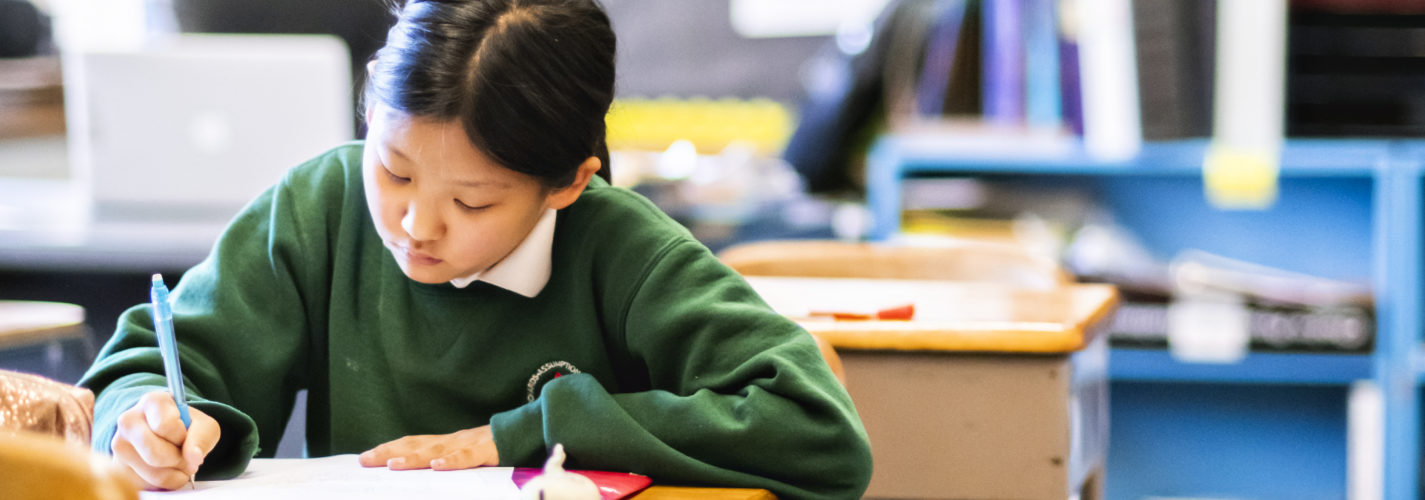February 2020 Research Rundown
By Krista Kaput
Welcome to EdAllies’ February Research Rundown: our curated list of recent, relevant research we think is worth adding to the education equity conversation. This month, we’re sharing research on:
- Inequities in advanced coursework,
- Insight on the views of educators, and
- Teacher retention and standardized assessments.
1. Inequities in Advanced Coursework: What’s Driving Them and What Leaders Can Do
The Education Trust, January 2020
The Education Trust examined disparities in access to advanced coursework for black and Latino students. The report found that even though black and Latino students are successful in advanced courses when given the opportunity, they are also often denied access to those courses. In some schools, these courses aren’t offered at all, and in others—particularly more diverse schools—advanced courses are offered, but black and Latino students are denied access. The report found that Minnesota is no exception, with black and Latino students very underrepresented in rigorous coursework.
In order to increase access, the report recommended that state leaders should:
- Set clear, measurable goals for access and success in advanced coursework;
- Commit to publicly measuring state and district progress toward those goals; and
- Use data to identify the barriers that prevent black or Latino students and students from low-income backgrounds from enrolling in advanced courses.
WHY THIS MATTERS IN MINNESOTA
In Minnesota, there are significant racial disparities in advanced coursework. A recent report from the Minnesota Department of Education revealed that white students account for 79% of the total rigorous coursework enrollment, whereas Asian students are 9%, Black students are 7%, Latino students are 5%, and Native Americans are 1%. For Advanced Placement exams, the disparities are even more stark with black, Latino, and Native American students making up just 3%, 4%, and 0.2% of passed exams, respectively. There is ample research that shows that students who participate in rigorous coursework have higher academic achievement and are more likely to attend and graduate college. Districts should examine their rigorous coursework data and create action plans for increasing access and success.
2.Voices from the Classroom 2020: A Survey of America’s Educators
Educators For Excellence, January 2020
Developed by 10 teachers from around the country, Voices from the Classroom is a nationally representative survey that captures views and opinions of educators on several education issues like teacher preparation, school climate, assessments, and more. One major finding: 88% of teachers believe programs are falling short of preparing teachers for the realities of the classroom, with a substantial portion indicating that they did not receive training in areas that they think are “critically important” to their work in the classroom. Importantly, less than half of teachers think their preparation programs were “very effective” in preparing them to provide rigorous and culturally relevant instruction, support student social-emotional need, engage families, differentiate instruction, and create assessments that accurately capture student learning.
WHY THIS MATTERS IN MINNESOTA
The Professional Educator Licensing and Standards Board (PELSB) is currently working to amend the Standards of Effective Practice—the core set of knowledge and skills that all teacher candidates in Minnesota teacher preparation programs learn. As PELSB amends these standards, it’s imperative that they listen to the voices of educators and work to ensure that the SEPs are comprehensive and will prepare teacher candidates to meet the needs of all students, and particularly those who have been historically underserved.
3. Testing, Teacher Turnover and the Distribution of Teachers across Grades and Schools
National Center for Analysis of Longitudinal Data in Education Research, January 2020
Over the last decade, Georgia has implemented four different student testing regimes with variation in both the subjects and grade levels tested. This presented a unique opportunity for researchers to look at the relationship between standardized assessments and teacher retention in isolation, whereas previous studies on the topic have been based in situations where testing was simultaneously instituted alongside other changes to school accountability.
Overall, the analysis found that the removal of statewide achievement tests had no effect on the likelihood that the teacher would leave the profession, change schools within a district, or move between districts, but a slight impact on the retention of early-career teachers. This study is unique because it looks more directly at the question of eliminating tests, and finds little direct connection to turnover.
WHY THIS MATTERS IN MINNESOTA
Teacher turnover in an ongoing policy topic in Minnesota. Last year, the Professional Educator Licensing and Standards Board (PELSB) released a report which found that 53% of licensed Minnesota teachers were no longer working in a classroom, but also noted a lack of data around why. A recent study by Minneapolis Public Schools found that teachers of color leave the profession because of persistent negative interactions, racial isolation, and job security. Nationally, the biggest reasons teachers report leaving the profession are personal life factors and deciding to pursue a different position. For those who have considered leaving the profession, the biggest factors cited are burnout, stress, inadequate pay, and lack of feeling valued. About 1% report testing requirements as a factor, which aligns with the findings from this new analysis.

